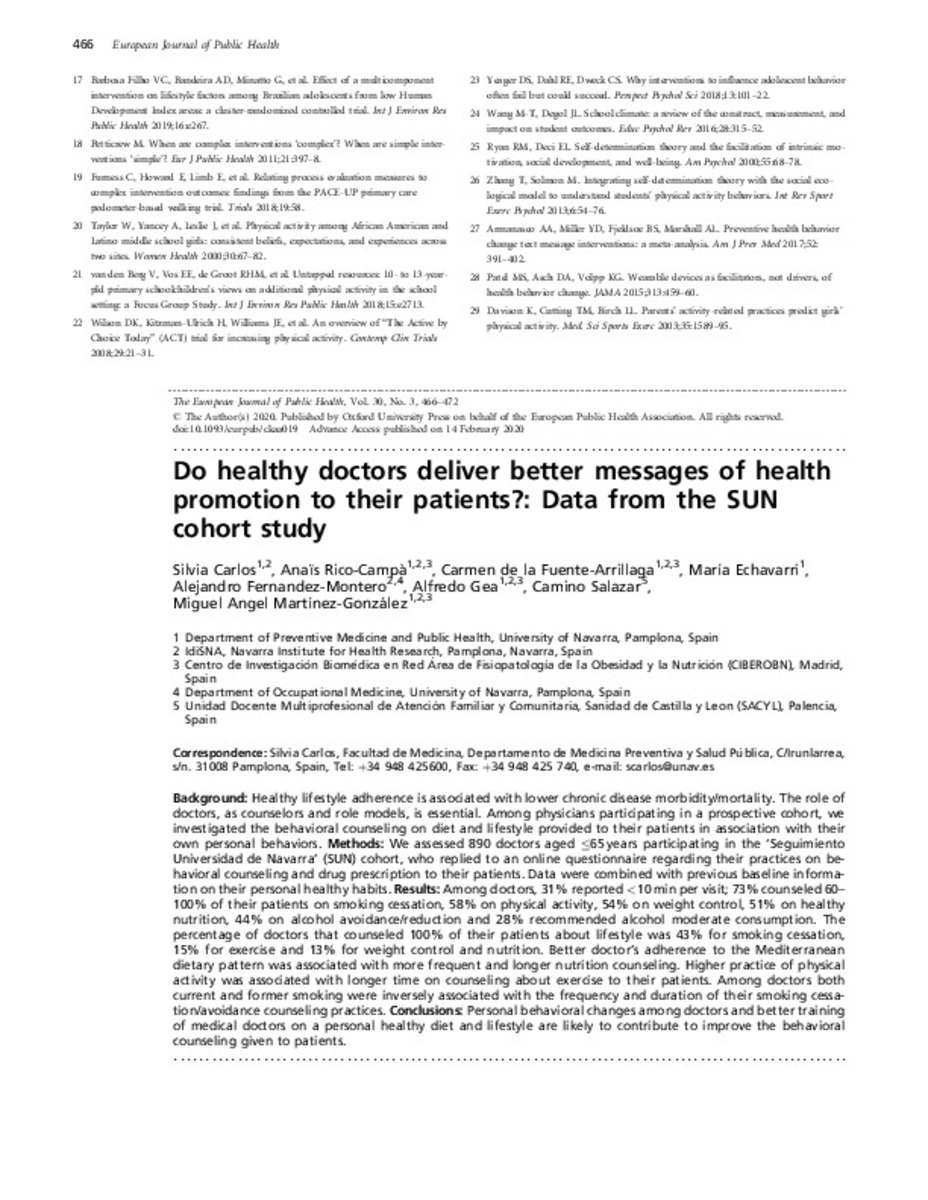Do healthy doctors deliver better messages of health promotion to their patients?: Data from the SUN cohort study
Keywords:
Ethanol
Physical activity
Smoking cessation
Diet
Exercise
Behavior therapy
Chronic disease
Counseling
Health promotion
Life style
Prescriptions
Drug
Morbidity
Mortality
Science of nutrition
Weight maintenance regimens
Behavioral change
Avoidance behavior
Risk reduction counseling
Healthy diet
Healthy habits
Healthy lifestyle
Professional counselor
Editorial note:
© The Author(s) 2020. Published by Oxford University Press on behalf of the European Public Health Association. All rights reserved.
Citation:
Carlos-Chillerón, S. (Silvia); Rico-Campà, A. (Anais); de la fuente-Arrillaga, C. (Carmen); et al. "Do healthy doctors deliver better messages of health promotion to their patients?: Data from the SUN cohort study". European Journal of Public Health. 30 (3), 2020, 438 - 444
Statistics and impact
0 citas en

0 citas en

Items in Dadun are protected by copyright, with all rights reserved, unless otherwise indicated.








